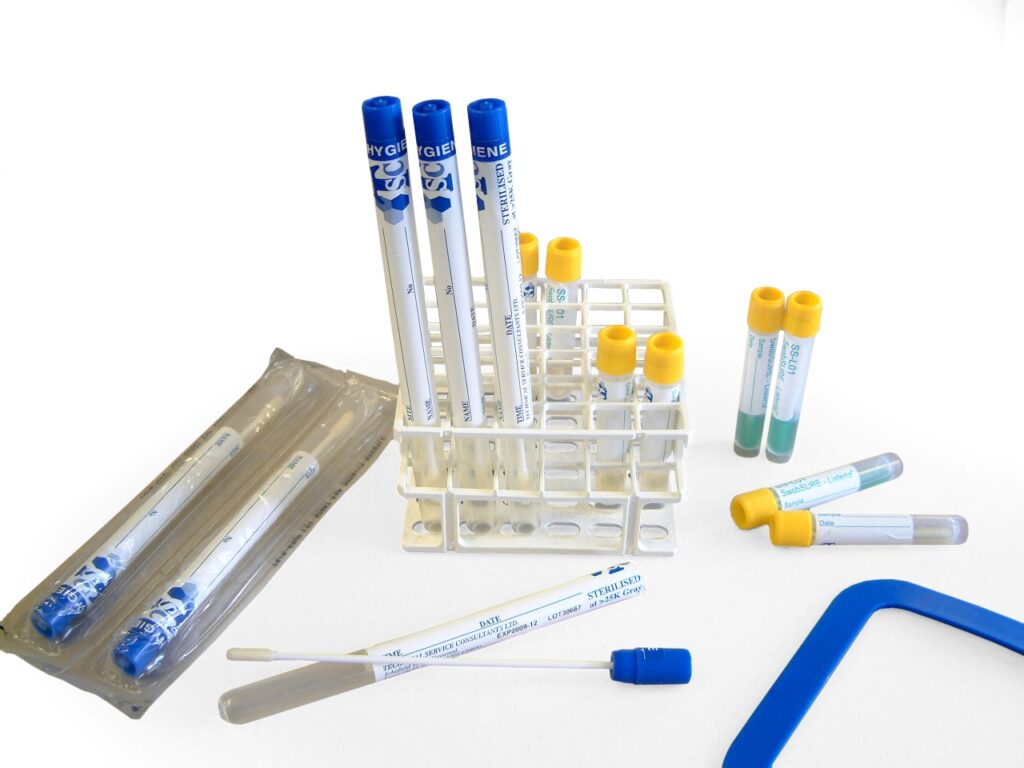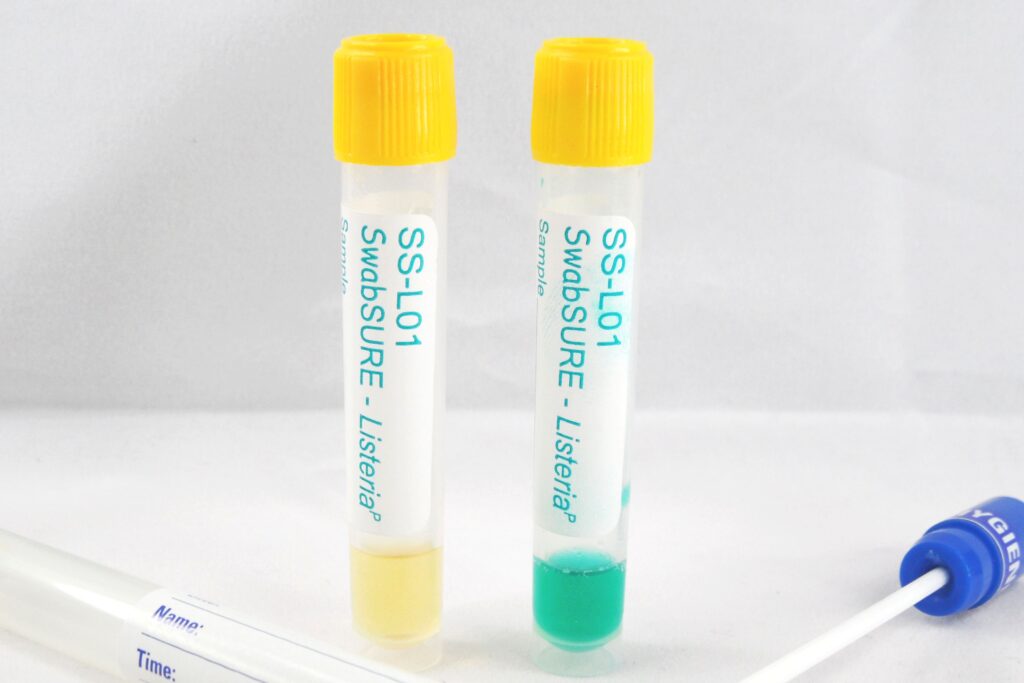
In its wide range of products for quality control and microbiology, KairoSafe focuses its attention on the sensitive issue of food safety by offering rapid and effective solutions.
Sampling of surfaces is a key process to assess the presence of microbial contamination in any food production plant. One of the main pathogenic strains sought is Listeria monocytogenes, a microorganism widely distributed in the environment, especially in soil, plants, water and fertilisers of plant origin. Resistant to low temperatures and with scarce nutritional needs, it is particularly frightening for the food industry, where its eradication can become a problem.
This bacterium is responsible of Listeriosis, a food toxin relevant for public health. Ready-to-eat foods are the products most frequently identified as possible vehicles of infection, together with raw foods (meat, fish, vegetables), gastronomic products and dairy products. Although processes such as pasteurisation and cooking kill the bacterium, foods can be contaminated at later stages due inadequate hygiene and cold chain.

Quick selective kits
There are methods and regulations that govern microbiological analysis for Listeria research, as well as rapid tests that help to significantly shorten the release time of the results. The SwabSure ListeriaP kit by Kairosafe stands out among the latter. This ideal product for monitoring surfaces and instrumentation in the food industry is a rapid and selective test that specifically detects pathogenic strains of Listeria monocytogenes and ivanovii, differentiating them from non-hazardous strains such as harmless Listeria.
The kit is easy to use because it requires few operational steps and does not require special equipment. In accordance with ISO 18 593:2004, it can be used in Haccp programs. Sampling of the surface to be analysed is carried out by means of a pre-humidified swab with a neutralizing solution which, in addition to facilitating the recovery of microorganisms from biofilm or dry surfaces, inactivates the disinfectants used for cleaning.
The swab is then transferred into the test tube containing a culture broth specially formulated to detect the activity of the enzyme Phospholipase C, considered one of the virulence factors of Listeria pathogenic strains. After incubation of the test tube in thermostat for 24-48 hours, the presence of Listeria monocytogenes and ivanovii in the sample determines the color change of the culture broth from yellow to turquoise-blue, by the action of a chromogenic substrate.
The same broth that tested positive can be examined with subsequent confirmatory tests. The method is very sensitive (up to 1 CFU/sample) and selective; the growth of other microorganisms is prevented by a combination of antibiotics and inhibitory compounds, eliminating the problem of false positives of traditional methods. The foam swab is specially selected to enhance recovery and release of microbial cells, ensuring accurate and reliable results.



